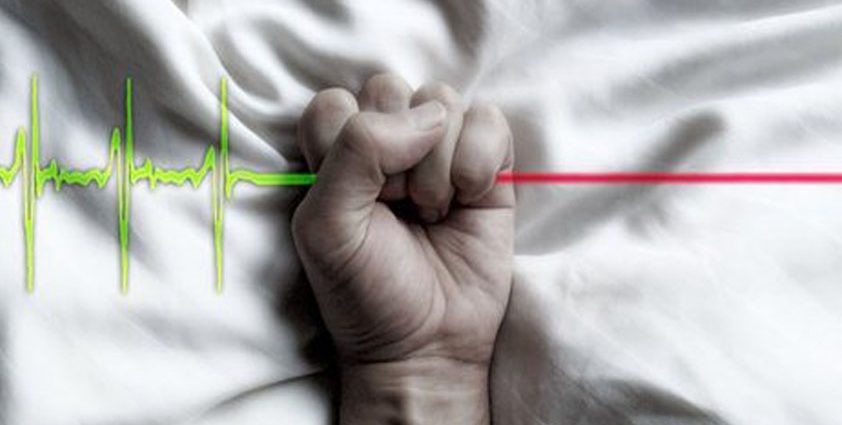By Dr. George Jacob
Kochi, Jan 23, 2024: A news report published in The New Indian Express of January 21 impacted the readers’ conscience. It left them grappling with questions. Questions that demanded convincing answers.
It was reported that a couple from Kottayam district in Kerala was considering approaching the Supreme Court to seek permission for mercy killing of all five members of their family.
The reason? They had exhausted all financial and psychological wherewithal in their efforts to treat two of their children suffering from a rare congenital disease. Their yoke proved too heavy to bear.
Their battle began when their second child was diagnosed with the disease seven days after birth. He was also diagnosed with Autism simultaneously, adding to their odds. Their troubles only mounted when the third child born to them was also diagnosed with the congenital disease.
A silver lining appeared as they struggled to stay afloat. The Union Ministry of Health and Family Welfare accepted their request to include the particular congenital disease in the group II category of rare diseases, for which support can be provided by the state government. Doctors opined that the combination of the disease with Autism was indeed extremely rare, and posed significant challenges on the parents in care giving. The funding provided by the government proved insufficient for their unique needs.
Moreover, the couple who were nurses employed in New Delhi couldn’t do justice to their jobs. The two sick children demanded their attention and time. Their mounting financial needs had them sell their properties and mortgage their home to secure a bank loan.
Another silver lining appeared in the form of a retired employee from the state Health Department, who also happened to be a member of the Panchayat the couple belonged to. He offered to help the couple by securing them jobs as nurses in the recently upgraded Family Healthcare Centre in their locality, where vacancies were available.
However, the government’s lackadaisical approach to take a policy decision on the matter prolonged the couple’s misery. They were left with no option but to consider assisted death.
This heartrending story represents failure of the existing healthcare system in Kerala. Kerala boasts of a supposedly ‘superior’ Healthcare dispensation, which is recognized as the best in the country, winning global accolades and recognition from agencies like the WHO.
This is based on various health indices like Maternal Mortality Rate, Infant Mortality Rate, Birth Rate, and life expectancy at birth, which, compares with those of Scandinavian nations. Paradoxically, the sordid tale of the unfortunate couple seems to represent the inefficiency of much-acclaimed healthcare scenario in Kerala to address special health needs on individual basis.
Why can’t affordable treatment be made available in the state for this congenital disease? After all, Kerala’s public hospitals now boasts of undertaking costly and complicated surgical procedures like organ transplantation and Coronary bypass surgery at rates much cheaper than in their counterparts in the private sector.
Inefficiency of Kerala’s healthcare system has had this couple tormented by their children’s ailments consider ending their life. The system failed them.
The couple’s heartrending tale also showcases society’s apathy, insensitivity and insensibility toward fellow humans in dire straits. Where are all those ‘super-rich’, who vie for titles viz; ‘richest person in the state, country and the continent’? Can’t they spare a portion of their fortune for society’s less fortunate who struggle in more ways than one? Where are those who lavish on palatial houses, swanky vehicles and costly personal accessories? Is charity extinct in Kerala?
Where are those people who are liberal with charity, just to let their right hand know what their left gave? While the tag of ‘magnanimous humanitarians’ is flaunted on their shoulders as a medallion? It is a fact that people who receive their largesse certainly benefit.
Moreover, where are those ‘filthy rich’ who reduce the weight of their shoulder bags by stuffing substantial portion of their wealth inside offertory bags and stalls of places of worship? Where are they who drape ‘places of worship’ with the yellow metal and precious stones worth a fortune? To bribe the ‘Gods’ supposed to be abiding there?
Why can’t they sponsor treatment of these unfortunate children whose distraught parents contemplate putting an end to the family’s misery? Is there any point in stuffing their fortune in so-called ‘houses of worship’, which are but manmade concrete structures? Do ‘Gods’ really need wealth and costly jewelry, when umpteen ‘less fortunate’ find living a losing exercise?
After all, hadn’t the famous Malayalam poet Vayalar pen the Malayalam song ‘kannuthurakathadaivangale (Gods who don’t open their eyes), in 1967 for the film agniputri, which was mellifluously rendered by P. Suseela? Vayalar attempts to portray futility of praying to ‘Gods’ made of clay by human hands, dwelling in places of worship, also made by human hands, to whom offertories are made in vain.
Vayalar, through the female protagonist of the movie, who enacts the song addresses these deities as insensitive ‘Gods who don’t open their eyes’, as ‘mere clay statues, who don’t know to laugh, or to cry’ with those who pray to them in mirth and in pain.
The poet through the song expresses the dejection of the vainly praying protagonist, who describes herself as ‘the jaded flower, which the same ‘Gods’ once adorned, only to be thrown away’, and as ‘the wick which burned itself to nonexistence before them’, as she prayed tearfully to them on numerous altars.
Why indulge, therefore in the vain exercise of praying to these Gods made of clay by human hands dwelling in concrete structures made by human hands? Why bribe them with money and gold?
While these questions await answers, will somebody help the couple at sea retrace their steps to the Court seeking permission for mercy killing?

